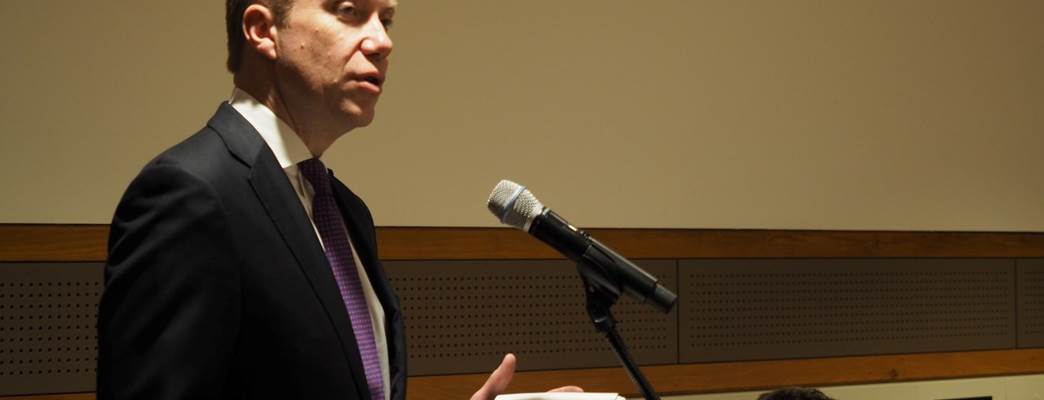It gives me great pleasure to open this side-event together with Margot and colleagues from Colombia, the Philippines, South Africa and the other Nordic countries.
There are good reasons to be concerned about the persistent obstacles to women's involvement in the prevention and resolution of conflicts. Fifteen years after the adoption of Security Council resolution 1325, women are still heavily under-represented in peace negotiations. In 31 major peace processes during the last two decades, only four per cent of the signatories and nine per cent of the negotiators were women.
What in reality should be common sense, is now also supported by research. It has been demonstrated that inclusive processes are more likely to lead to peace agreements, and the peace also lasts longer.
What is more, peace agreements are often the political and institutional foundation for the future of a country. This makes the absence of women from official peace processes all the more provoking.
The Nordic Women Mediators Network was launched in Oslo last November to address this situation. We were inspired by South Africa who initiated the first network of African Women Mediators. And we let us inspire by the many strong women out there who are committed to peace. Last year, I had a compelling meeting with women from South Sudan. They suggested solutions where everyone else saw nothing but obstacles. And I understand why Steffan de Mistura uses the women's advisory board as his sounding board in the peace talks in Syria. Because the Syrian women walk their talk of peace, even when it hurts.
Our goal is to make sure that the vast competence and knowledge that exist among women is used in international peace mediation efforts. Let me mention three examples:
- In Afghanistan, Norway promotes efforts to establish an inter-Afghan peace process. Enhancing the participation of women in the political process is one of the purposes of a women's conference later this month in Kabul.
- In Colombia, supporting the inclusion of women and a gender perspective is one of the main priorities in our facilitation efforts in the peace process.
- And in Syria, establishing a mechanism for including input from women is an important part of the efforts to ensure an inclusive political process.
However, we still have a long way to go. We need to continuously challenge each other. How can we create better links between local level efforts and official peace processes, enhancing the participation of women? And how can we better involve and tap into the knowledge, experiences and resources of young women in our efforts to counter violent extremism
Let's remind ourselves that women's involvement in the prevention and resolution of conflicts is much more than a gender issue. It is about sustainable peace and security, inclusive growth and development, for us all, irrespective of gender.
Thank you.
